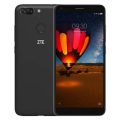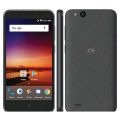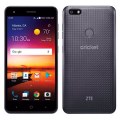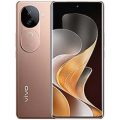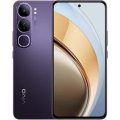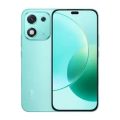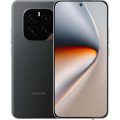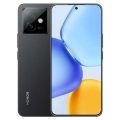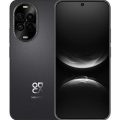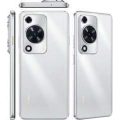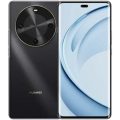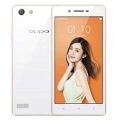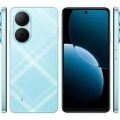ZTE Blade L9
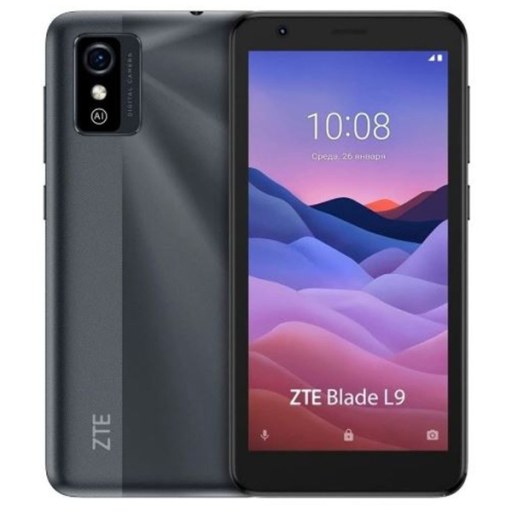

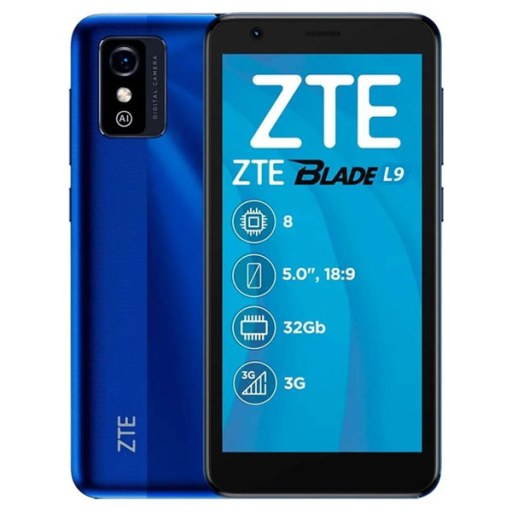
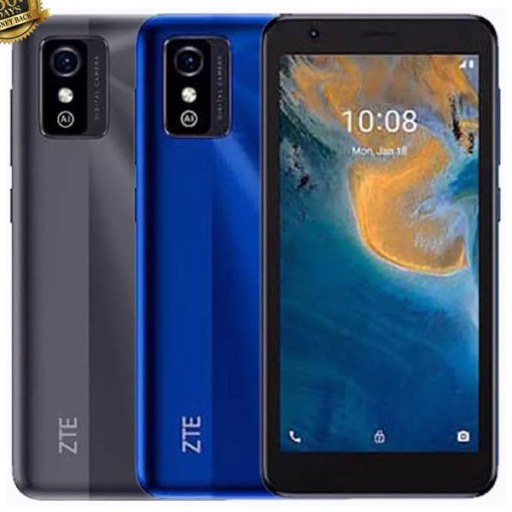

-
Released: 2021, October 10
-
Operating System: Android 11
-
Display: 5.0" 480x960 pixels
-
Camera: 50MP 720p
-
RAM: 1GB RAM Unisoc SC7731e
-
Battery: 2000mAh Li-Ion
Specifications
Prices
| Official Official | ৳8,000 |
| Unofficial Unofficial | N/A |
Launch
| Announced Announced | 2021, October 10 |
| Status Status | Available. Released 2021, October 10 |
Network
| Technology Technology | GSM / HSPA |
| 2G 2G |
GSM 850 / 900 / 1800 / 1900 - SIM 1 & SIM 2 |
| 3G 3G |
HSDPA 850 / 900 / 1900 / 2100 |
| 4G 4G | N/A |
| 5G 5G | N/A |
| Speed Speed | HSPA 42.2/5.76 Mbps |
| GPRS GPRS | |
| EDGE EDGE |
Body
| Dimensions Dimensions | 137.5 x 67.5 x 10 mm (5.41 x 2.66 x 0.39 in) |
| Weight Weight | 143 g (5.04 oz) |
| Build Build | N/A |
| SIM SIM |
Dual SIM (Nano-SIM, dual stand-by) |
| Water Resistant | N/A |
Display
| Type Type | TFT capacitive touchscreen, 16M colors |
| Size Size | 5.0 inches, 64.5 cm2 (~69.5% screen-to-body ratio) |
| Resolution Resolution | 480 x 960 pixels, 18:9 ratio () |
| Protection Protection | N/A |
| Refresh Rate Refresh Rate | N/A |
| Features Features | ~215 ppi density |
Platform
| Operating System OS => Every computer system run on a base software called Operating System (OS). Operating System controls all basic operations of the computer (such as smartphone, PDAs, tablet computers and other handheld devices). The Operating System allows the user to install and run third party applications (apps), apps are used to add new functionality to the device. | Android 11 (Go edition) |
| Chipset Chipset | Unisoc SC7731e |
| CPU CPU | Quad-core 1.3 GHz Cortex-A7 |
| GPU GPU | Mali-400 MP2 |
Memory
| Card slot Card slot | microSDXC |
| Internal Internal | 32GB |
| RAM RAM | 1GB |
Main Camera
| Back Back |
5 MP (up-scaled to 8 MP) |
| Features Features | LED flash, HDR, panorama |
| Video Video |
720p@30fps |
Selfie camera
| Front Front |
2 MP (up-scaled to 5 MP) |
| Features Features | HDR |
| Video Video |
720p@30fps |
Sound
| Alert Types | Vibration, MP3, WAV ringtones |
| Loudspeaker | Yes |
| 3.5 mm jack 3.5 mm jack | Yes |
Connectivity
| WLAN WLAN | Wi-Fi 802.11 b/g/n/ac, hotspot |
| Bluetooth Bluetooth is a wireless communications technology for exchanging data between mobile phones, headsets, computers and other network devices over short distances without wires, Bluetooth technology was primarily designed to support simple wireless networking of personal consumer devices. | Yes |
| GPS GPS The Global Positioning System is a satellite-based radio navigation system, GPS permits users to determine their position, velocity and the time 24 hours a day, in all weather, anywhere in the world, In order to locate your position, your device or GPS receiver must have a clear view of the sky. | Yes, with A-GPS |
| NFC NFC (Near field communication) is a set of standards for smartphones and similar devices to establish peer-to-peer radio communications with each other by touching them together or bringing them into proximity, usually no more than a few inches. | |
| FM Radio | Yes |
| USB | microUSB 2.0 |
| Infrared port Infrared connectivity is an old wireless technology used to connect two electronic devices. It uses a beam of infrared light to transmit information and so requires direct line of sight and operates only at close range. |
Features
| Sensors Sensors are electronic components that detects and responds to some type of input from the physical environment. The specific input could be light, heat, motion, moisture, pressure and location, The output is generally a signal that is converted to use in computing systems, a location sensor, such as a GPS receiver is able to detect current location of your electronic device. |
Accelerometer |
| Messaging Messaging | SMS(threaded view), MMS, Email, IM |
| Browser Web Browser => a web browser is a software application used to locate, retrieve and display content on the World Wide Web, including Web pages, images, video and other files, The primary function of a web browser is to render HTML, the code used to design or markup webpages. | HTML5 |
| Java Support Java for Mobile Devices is a set of technologies that let developers deliver applications and services to all types of mobile handsets, ranging from price efficient feature-phones to the latest smartphones. Java is currently running on over 3 billion phones worldwide, and growing. It offers unrivaled potential for the distribution and monetization of mobile applications. |
Battery
| Battery Type Battery Type => Cell phones run on various kinds of batteries depending on the manufacturer, phone size or shape and features. There are basically four types of cell phone batteries => Lithium Polymer, Lithium Ion, Nickel Metal Hydride and Nickel Cadmium. | Non-removable Li-Ion |
| Capacity Battery Capacity is a measure (typically in Amp-hr) of the charge stored by the battery, and is determined by the mass of active material contained in the battery. The battery capacity represents the maximum amount of energy that can be extracted from the battery under certain conditions. | 2000 mAh |
| Charging Wireless Charging (Inductive Charging) uses an electromagnetic field to transfer energy between two objects. This is usually done with a charging station. Energy is sent through an inductive coupling to an electrical device, which can then use that energy to charge batteries or run the device. | Yes |
| Fast Charging Fast Charging | No |
More
| Made by Made by | China |
| Colors |
Black, Blue |
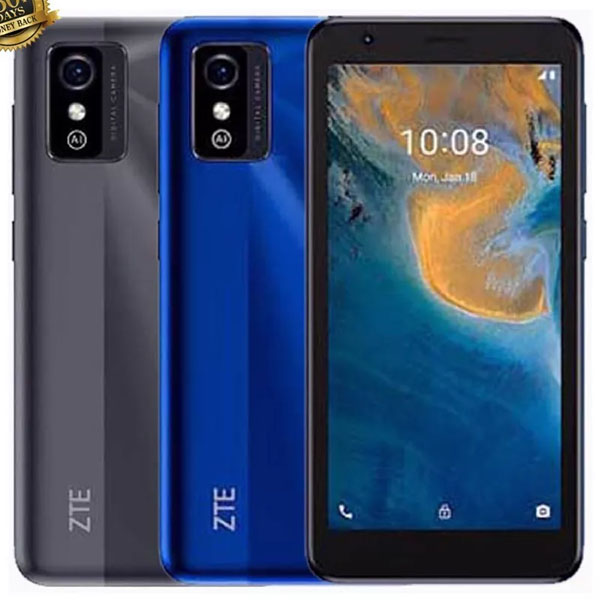
ZTE Blade L9 Review – Bangladesh Edition
Overview and Context
In a market like Bangladesh, where smartphone buyers span a wide range—from budget-conscious users to tech enthusiasts—the demand for reliable, affordable entry-level devices remains strong. Among the lesser-known but steadily improving brands, ZTE occasionally surfaces with ultra-budget offerings such as the ZTE Blade L9, a compact, no-frills smartphone aimed at first-time users and basic needs.
Originally released in October 2021, the ZTE Blade L9 is a modest device with minimal hardware: a 5.0-inch TFT display, Android 11 (Go Edition), a low-tier Unisoc chipset, 1 GB RAM, 32 GB storage, and a 2,000 mAh battery. It’s designed for extremely basic tasks—calls, lightweight apps, FM radio, simple browsing—and that’s precisely where its strength lies. GSMArenabdmobilephone.comMobileBDGadgets 360
In this review, we’ll explore how the ZTE Blade L9 performs in the context of the Bangladeshi market, consider its actual pricing, build a realistic profile of its capabilities and limitations, and assess whether it is still a viable option in 2025. Official information from ZTE is limited, so we’ll rely on credible spec aggregators and published references.
Official Reference
Sadly, ZTE does not appear to maintain a dedicated official landing page or product page for the ZTE Blade L9 at this time. However, the device is listed in Wikipedia’s comparison of Android Go smartphones, which includes its full specifications and place in ZTE’s 2021-lineup Wikipedia+1. This can serve as a semi-official reference for specs and launch details:
- ZTE Blade L9: Released October 2021, Android 11 (Go), 5″ 480×960 display, 1 GB RAM, 32 GB storage, Unisoc SC7731e, 5 MP rear & 2 MP front, 2,000 mAh battery WikipediaGSMArenaGadgets 360.
Availability & Price in Bangladesh
Price Estimates
In Bangladesh, the ZTE Blade L9 can be found through local online retailers as a very budget-friendly option. Reported price listings include:
- BDMobilePhone.com lists the ZTE Blade L9 at approximately ৳6,860 bdmobilephone.com.
- Assuredzone (BD) cites a slightly higher current price of ৳6,996 Assuredzone.
- Other aggregator sites, such as MobileBD, previously expected it to retail around ৳8,000 upon launch MobileBD.
- PhoneAqua mentions a range between ৳9,920 to ৳11,160 Phoneaqua, though these figures appear to be inflated or less accurate given the general market reality.
Conclusion on pricing: As of mid-2025, the realistic street price for a brand-new ZTE Blade L9 in Bangladesh ranges between ৳6,800 to ৳7,000, with occasional older stock or promotions pushing slightly lower or higher.
Market Position
At this price bracket, the ZTE Blade L9 sits firmly in the ultra-budget segment. It competes against older pre-owned devices, basic local-brand models, or even entry-level 4G units from regions. Given inflation and the availability of far more powerful budget phones now even under টাকায় 10,000, the ZTE Blade L9’s niche appeal is extremely niche—mostly for users needing a backup phone, a child’s first phone, or a simple device for emergencies.
Design & Build Quality
The ZTE Blade L9 is a small and light device by modern standards:
- Dimensions: 137.5 × 67.5 × 10 mm, weight: 143 g MobileBDGadgets RealmAssuredzone.
- Build: Plastic frame and back, possibly with Gorilla Glass front per some listings usdmobiles.com.
- Colors: Typically Black and Blue; some listings mention an additional “Purple” variant in Bangladesh markets BD PriceClassyPrice.
The compact form factor and light weight make one-handed use a non-struggle—still a rarity for 2025 budget phones.
Display
- Screen: 5.0-inch TFT/LCD display, 480 × 960 resolution (18:9 aspect ratio), ~215 ppi GSMArenaMobileBDWikipedia.
- Screen-to-body ratio: Around 69.5%, modest bezels by today’s norms MobGadgetsGadgets Realm.
- Brightness: Adequate for indoor use but poor under strong outdoor light MobGadgets.
- Touch responsiveness: Acceptable for everyday tasks, though far from smooth or accurate seen in more advanced devices MobGadgets.
Analysis: The display is functional but decidedly dated; pixelated and dim compared to current low-end phones offering HD+. Still, it fits the very basic requirements of simple messaging, dialing, and reading small text in moderate lighting.
Performance & Hardware
- Chipset: Unisoc (formerly Spreadtrum) SC7731e, quad-core Cortex-A7 at 1.3 GHz, Mali-400 MP2 GPU GSMArenaMobileBDusdmobiles.com.
- Memory: 1 GB RAM, 32 GB internal storage (eMMC 5.1), expandable via microSDXC MobileBDBD Pricecellphonearea.com.
Performance Use Cases:
- Runs Android 11 Go Edition—a lightweight OS optimized for low memory devices MobileBDMobGadgets.
- Basic tasks such as calls, SMS, light web browsing, YouTube (low quality), FM radio, and simple utilities are manageable MobGadgetsBD Price.
- Struggles with multitasking, resource-intensive apps, or complex web pages; gaming beyond basic casual games is not realistic MobGadgets.
- Geekbench or graphical benchmarks are not readily available, but anecdotal low performance is expected given hardware constraints MobGadgets.
Summary: The ZTE Blade L9 delivers acceptable performance only if used exactly for what it’s meant: very lightweight use with minimal app load.
Cameras
- Rear Camera: 5 MP (often upscaled or interpolated to 8 MP in software).
- Front Camera: 2 MP (sometimes upscaled to 5 MP) MobileBDPhoneaquaGadgets 360.
- Features: LED flash, HDR (software-based), video recording at 720p @ 30fps BD PricePhoneaqua.
Performance: Daylight shots are serviceable but far behind modern phones in detail, sharpness, or low-light performance. Selfies are similarly basic—acceptable for video calls, not for social media posting.
Battery, Charging & Connectivity
- Battery: 2,000 mAh Li-Ion, non-removable MobileBDBD Price.
- Battery Life: Claimed talk time up to 8 hours on 3G, standby ~60 hours, and up to ~5 hours net browsing BD Price.
- Charging: Standard charging, likely between 1.5–2 hours full charge BD Price.
Connectivity Features:
- Dual SIM (nano-SIM, standby)
- Networks: 2G (GSM), 3G/HSPA; no 4G—a major drawback in 2025 MobileBDPhoneaqua.
- Wi-Fi: 802.11 b/g/n, Bluetooth 4.2, GPS with A-GPS & GLONASS MobileBDBD Price.
- Ports & Extras:
- micro-USB 2.0
- 3.5 mm headphone jack
- FM radio included bdmobilephone.comBD PriceGadgets RealmAssuredzone.
- Sensors: Accelerometer only; no proximity, gyroscope, compass, or light sensor in most variants BD PriceMobileBD.
Evaluation: While battery size is small, modest use could see you through part of a day. The inability to connect to 4G networks is a critical limitation—most users in Bangladesh now expect at least 4G. These limitations confine the ZTE Blade L9 strongly to secondary or very basic primary usage.
Software: Android 11 (Go Edition)
Running Android 11 Go Edition, the device offers a lightweight OS designed for hardware-limited phones.
- Clean, uncluttered UI
- Pre-installed Go-optimized apps (YouTube Go, Maps Go, etc.)
- Lower storage and RAM usage MobGadgets.
But software updates from ZTE are rare. As seen in broader ZTE device experiences, software support tends to be minimal.
A Reddit user with a different ZTE device (Axon 7 mini) noted:
“I had a ZTE Axon 7 mini … but after the 2nd year it had charging issues and in the 3rd year the phone died … I don’t intend to buy any ZTE phones and don’t recommend them for long term use …” Reddit
Another user chimed in:
“Build quality is good … ZTE is not very good at providing software updates.” Reddit
While not directly about the ZTE Blade L9, these comments reflect brand-wide trends that may apply here too. Buyers should temper expectations around software longevity.
Pros & Cons – ZTE Blade L9
| Pros | Cons |
|---|---|
| Ultra-affordable (~৳6.8k–7k) | No 4G, only 3G connectivity |
| Compact, lightweight design | Only 1 GB RAM, limited multitasking |
| Android Go optimizes basic performance | Low-res display, outdated hardware |
| Includes 3.5 mm jack & FM radio | Very limited camera quality |
| Expandable storage via microSD | Short battery life (2,000 mAh) |
| Minimal software updates/support |
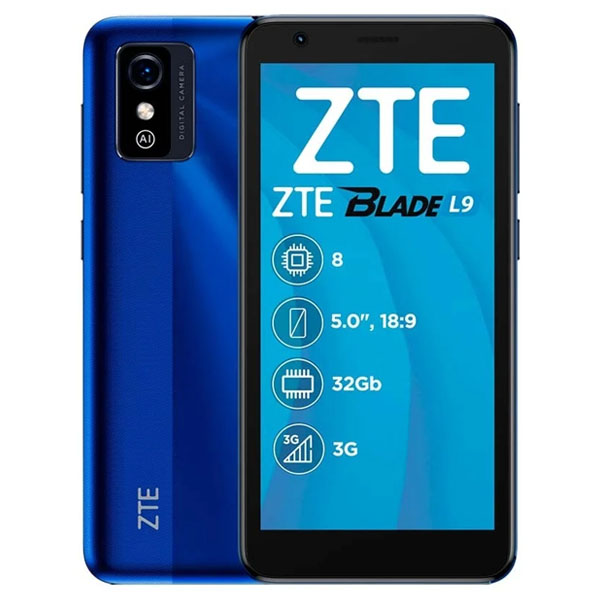
Should You Buy the ZTE Blade L9 in Bangladesh?
Who It’s For:
- Buyers on an extremely tight budget who need a working phone for calls, SMS, and very basic apps.
- As a child’s first phone (with supervision and limited expectations).
- As a backup or secondary phone in case your main one stops working or runs out of battery.
- Users in remote areas where only 2G/3G is available—but note, 3G networks are being phased out in many regions.
Who Should Avoid It:
- Anyone expecting 4G or faster internet—it lacks 4G entirely.
- Users needing a long-lasting primary device for social media, photography, gaming, or heavy apps.
- Business or power users needing reliable long-term software support or modern features.
- Those who frequently multitask or use Messenger, WhatsApp, or video platforms.
In 2025, devices like the ZTE Blade L9 are very niche. For a slightly higher price—say, under ৳10,000—Bangladesh now offers many newer 4G-equipped devices with better displays, bigger batteries, and more RAM. But if your budget is fixed and minimal, the Blade L9 can still serve as a functional, low-cost option.
Final Verdict
The ZTE Blade L9 is a flashback to an earlier era of smartphones—tiny, basic, slow, and spartan by modern standards. Yet, for its price point (approximately ৳6,800 to ৳7,000 in Bangladesh), it does the essentials: calling, texting, light app usage, and FM radio with a headphone jack.
As a primary smartphone in 2025, it misses too many must-have features—chiefly 4G connectivity, sufficient RAM, and lighting-fast response. But as a backup device, child’s phone, or extreme-budget solution, it can still fit certain very specific needs.
Reviews
Disclaimer Note
We always try our best to keep our website content and information updated and correct, the material and information contained on our website is for general information purposes only, You should not rely upon the material and information as a basis for making any business, legal or any other decisions.

